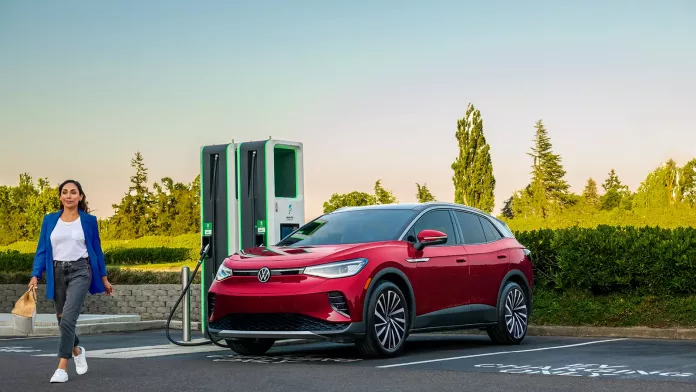The echoes of the Covid-19 pandemic have been felt far beyond the immediate health crisis, profoundly impacting our mental well-being. As we grapple with lingering feelings of anxiety and isolation, nostalgia has emerged as a comforting refuge, providing solace and stability against the backdrop of an uncertain future. Through revival of positive memories and a yearn for days gone by, nostalgia serves as a potent psychological balm, strengthening our sense of community and belonging in trying times.
Revving Up Nostalgia: Volkswagen’s Electric Approach
In a clever blend of past and future, Volkswagen is leveraging the timeless appeal of its historic Beetle and Microbus models to captivate consumer hearts anew, this time with a sustainable twist: these icons of the 1960s will re-emerge as electric vehicles. By invoking memories of simpler times, the company aims to generate excitement and loyalty in its modern, eco-friendly offerings.
Nostalgia marketing taps into deep-seated emotions, fostering a sense of connection and warmth. It has become a key tool for brands like Volkswagen to enhance the attractiveness of their products, playing on themes of social bonding and trust which resonate strongly in a world where technology often challenges traditional forms of interaction.
Remembering the whimsical experiences associated with the vintage Volkswagen Beetle—from cramming in friends for a joyride to witnessing its feats in distant Antarctica—is more than just a trip down memory lane. These recollections resonate with a spirit of individuality that the “people’s car” epitomized, speaking to a collective counter-cultural consciousness and unity that Volkswagen seeks to reignite in its new electric era.
Volkswagen’s Ingenious Electric Strategy
With its corporate sights set on the U.S. market, Volkswagen’s strategy banks on the deep-rooted affection for its legacy vehicles, including plans to incorporate the ID.Buzz and the Scout brand into its electric lineup. Drawing a stark contrast between the turbulence of current times and the cherished memories of yesteryear, Volkswagen aspires to drive demand for its electric portfolio by harnessing the powerful dynamic of nostalgia.
Within this rapidly electrifying landscape, where all players are starting on equal footing, Volkswagen’s CFO Arno Antlitz acknowledges the chance for significant growth, a sentiment mirrored by the brand’s commitment to American electrification.
Nostalgia’s Role in Today’s Automotive Marketplace
Nostalgia’s allure isn’t lost on marketers, particularly when engaging with millennials. By crafting messages that draw on the past’s charm, brands like Volkswagen aim to evoke emotional bonds and cultivate consumer loyalty. As the second-largest automaker globally, Volkswagen’s robust presence in Europe and China is now complemented by a determined focus on expanding its U.S. market share.
In the diverse race for automotive supremacy, especially in the electric vehicle segment, Volkswagen’s family of brands—which includes prestigious names like Audi, Porsche, Bentley, and Lamborghini—sets its sights on doubling U.S. market share. With firm commitments to increasing production in North America and plans for competitively priced electric vehicles, the company is positioning itself to capitalize on federal incentives and meet consumers’ needs.
Rumors suggest that the nostalgia-infused marketing might find its zenith with the return of an electric vehicle reminiscent of the beloved Beetle, catering to both the heartstrings and the environmentally conscious sensibilities of modern consumers.
From Scandal to Charged Future: Volkswagen’s Electric Redemption
Volkswagen’s pivot to electric dominance carries an undercurrent of irony, rooted in the aftermath of the “Dieselgate” scandal. This infamous chapter, which involved manipulated emissions data, resulted in the birth of Electrify America—a mandatory investment by Volkswagen to fuel the electric vehicle revolution with a comprehensive charging network.
This foundational step, combined with the success of their electric models outperforming Tesla in Europe, showcases Volkswagen’s newfound embrace of the electric future. In the U.S., the brand is not alone in this journey; competitors like Hyundai, GM, and Ford are pacing themselves with hefty investments in electric vehicle development. Even Toyota, traditionally slower in this race, plans to join the fray with its own large electric SUV soon.
With their historical lineage and innovative prospects, Volkswagen’s electric ambitions signal both a nod to the past and a charge towards a future where driving pleasure and environmental stewardship go hand-in-hand.

























